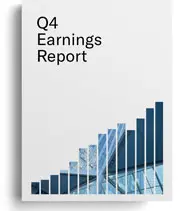Corpay tours with Cirque du Soleil
See why the global leader in live entertainment relies on Corpay to manage foreign exchange risk and international corporate payments
We process $145B+ annually in over 140 currencies to over 200 countries
Achievements and Testimonials

Ranked #1 in Enterprise Payment Software

S&P 500 member

One of the world's most loved workplaces
*Corpay Cross-Border has been named the #1 Enterprise Payment Software in the last two G2 Reports (Summer and Fall 2023, and Winter 2024)





